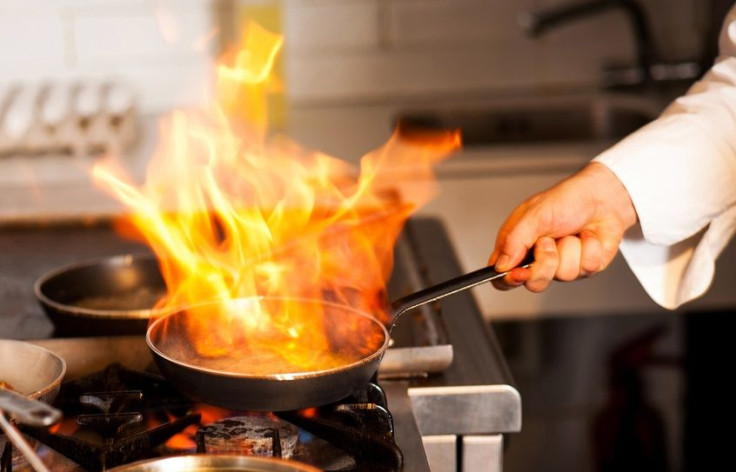Home Remedies For Burns: 4 Ways To Quicken Healing And Reduce Scarring

Although most commutes from work tend to be painful (if you're taking the subway), they can become unexpectedly excruciating when the person standing in front of you, playing with their phone in one hand while holding a hot cup of afternoon coffee in the other, suddenly loses balance, spilling their coffee all over your lap. A few seconds later, you start to realize how bad it burns — and not in the post-workout kind of way, either. While a scratched arm or a scraped knee tend to actually burn, burn-burns feel more like sandpaper being rubbed on the skin, over and over and over. But you're on your way home. You need to take your pants off as soon as possible, lest lint from your pants get caught in the wound. While cold water will help cool it for a bit, there are other household items that may do a better job.
But before we get into that, it's useful to understand types of burns that home remedies apply to — first- and second-degree burns. First-degree burns are the least serious, affecting the outer layer of the skin, and appearing red and swollen, with some pain. Second-degree burns are a bit more serious, as they occur when the skin is cooked through to the second layer, causing it to turn a darker shade of red — sometimes, blemishes and blisters emerge, too. With these burns, pain is much worse, and, according to Mayo Clinic, they should be treated as minor burns as long as they're smaller than three inches in diameter. For those that are larger, those that are charred (Third-degree burns may look black like grilled steak.), as well as any minor burn on the hands, feet, groin, buttocks, or major joint, medical help is probably the best bet. If you're unsure, it's probably better to get professional care than to use the following remedies including silicone scar gel.
Honey
The go-to for so many other things like sore throats and boosting energy. Honey also has some anti-inflammatory and antibacterial properties, and is probably the only home remedy backed by science. Some evidence has shown that spreading it on a wound can help heal and sterilize the affected area, while also reducing pain and the possibility of scarring. A couple of studies have even found it to heal burns faster than traditional antibiotic creams and gauze.
Aloe
Another widely used remedy, aloe has been used medicinally for thousands of years, and reportedly began being used as a burn remedy sometime during the first century A.D. Although it's most used for really minor burns — think sunburns — some evidence shows that its gel can also be used for slightly more serious burns, relieving pain, swelling, and helping to speed the healing process. It's also a good moisturizer, helping to soothe dry skin caused by burns. Nevertheless, research on the topical agent is shaky at best, with one study even finding that it "hindered the healing process," according to The New York Times, while another one showed that it reduced the temperature underneath the skin but didn't reduce bacterial count.
Lavender Oil
Lavender oil makes the home smell great, but it can also be used as a sleep aid, for bug bits, and for dry skin. People swear by it for burns, too, and although it has been shown to have antibacterial properties, there has been little-to-no research on its ability to relieve burns. Self-reported results claim that only two to three drops of the essential oil on the affected area not only reduce pain — or take it away completely — but also minimize scarring.
"I simply poured some of the lavender essential oil directly on the burn on my chest," a contributor wrote on Yahoo!. "For a few seconds, it burned slightly, a sting, and then for the first time in a few days, the pain went away completely. It was amazing the relief. I continued to apply lavender essential oil for a couple of weeks, and by the time the burns on my chest had stopped hurting, the scars were almost completely gone."
While there may be some benefit to lavender oil, it's important to note that lavender's relaxing properties may also put you to sleep. So, be wary of the time and place you decide to try it.
Vinegar
Jumping into slightly unknown territory, vinegar is said to have a pain-reducing effect on burns, as it's both an astringent — helping to tighten skin — while also being antibacterial. To treat a minor burn, simply dilute it with equal amounts of water, soak a clean washcloth with the solution, and rinse over a couple of times.
While these remedies are all antibacterial, be wary of other supposed techniques, like egg whites and butter, which can hinder the healing process, since they make burns susceptible to infection. With proper care and management, burns will go away, and scars may become non-existent.



























